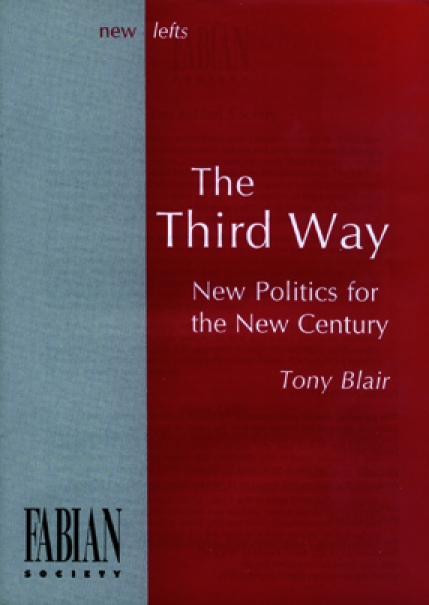Tony Blair

Fabian society, £3.50, pp 20
ISBN 0 71630588 7
———————
Rating: curiosity ★★★★, coherence ★
The plot is simple. Once upon a time, there was a world of secure jobs, large firms, low unemployment, relatively closed national economies, and strong communities underpinned by stable families. In that world social democratic governments could pursue their goals by simply using the instruments of state power. But that world has gone. Globalisation and other changes now mean that social democratic measures no longer work. Yet we should not give up on important centre left values—equal worth, opportunity, responsibility, and community. Governments will have to learn new skills, however. They must work in partnership with the private and voluntary sectors. They must devolve power. And they must avoid bloated central bureaucracies.
Taken literally, this diagnosis spells bad news for the NHS, which, along with the Civil Aviation Authority and the Church of England, is one of the few nationalised industries left in Britain. It would naturally imply something like the social insurance sickness funds for health care found in Germany, where the ideas of Christian democracy have sought to reconcile a commitment to social solidarity with a concern to limit the power of the state.
Yet, at this point, the argument bottles out. For Tony Blair, the NHS is a formidable achievement. That is why more money was found for it in the comprehensive spending review. The reduction of waiting lists is a priority, and there will be more rigorous monitoring of costs and quality. In other words the “third way” in health is a continuation of postwar policies by another name.
Such a paradox is not hard to understand. In the field of health services the story line of the third way is inconsistent with the high level of public support that the NHS enjoys. But the problem arguably goes deeper. In health care Tony Blair is a prime minister with a Christian democratic project working with a popular social democratic legacy.
Does this matter? After all, the world of politics rarely fits the neat categories of political ideology. And, of course, politicians can be forgiven many inconsistencies when they win landslide elections. Yet if we want an acid test of the third way it is mentioned in passing on page 14—long term care for elderly people. Only when we see how the Blair government handles this issue will we know whether the principles of the third way transcend the economic individualism to which it purports to be the successor.


